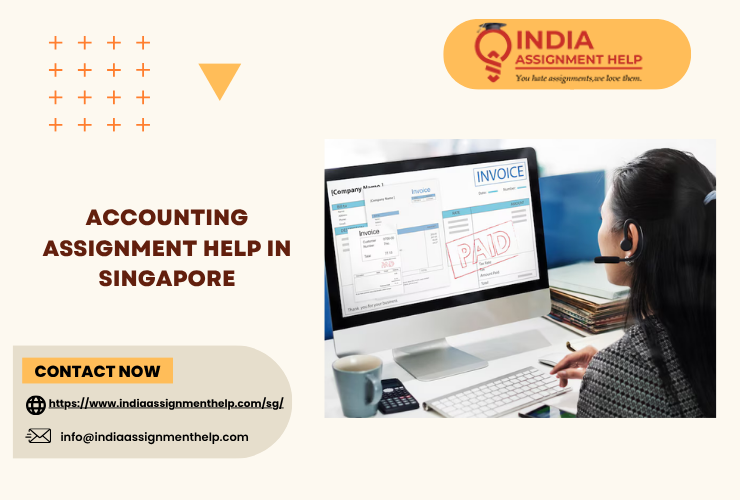In today’s fast-paced and ever-changing business landscape, the ability to solve problems efficiently and think critically is no longer optional—it’s essential. Organizations that cultivate these skills within their teams are more agile, more innovative, and ultimately more successful. As markets shift and industries embrace rapid transformation, teams that can navigate uncertainty, identify root causes, and develop strategic solutions stand out from the rest. This is where focused corporate training in Mumbai problem-solving and critical thinking plays a pivotal role.
Why Problem Solving and Critical Thinking Matter
Problem-solving and critical thinking are often cited as top soft skills for the modern workforce—and for good reason. Problem-solving involves the ability to identify challenges, analyze contributing factors, and implement effective solutions. Critical thinking, on the other hand, is the ability to objectively evaluate information and make informed judgments.
Together, these skills foster better decision-making, reduce costly errors, and drive innovation. When employees can independently and collaboratively work through complex challenges, they contribute to faster project delivery, improved team efficiency, and higher customer satisfaction.
The Challenges Teams Face Without These Skills
Without proper training in critical thinking and problem-solving, teams can quickly become reactive instead of proactive. They may focus on treating symptoms rather than solving root causes, make impulsive decisions, or fall into patterns of groupthink. These behaviors can lead to wasted resources, declining productivity, and stagnant innovation.
Additionally, teams lacking these essential skills often rely heavily on leadership for direction, which slows down progress and limits the organization’s ability to scale. This dependency creates bottlenecks and hinders the development of future leaders within the organization.
How Corporate Training Shapes Smarter Teams
Effective corporate training programs don’t just teach theoretical concepts—they equip employees with practical tools, real-world applications, and the confidence to make sound decisions. Workshops focused on problem-solving and critical thinking use interactive formats such as case studies, role-playing, and simulations to enhance learning and retention.
Participants are challenged to question assumptions, identify biases, and use structured methods like root cause analysis, SWOT assessments, and decision matrices. These techniques encourage analytical thinking and foster a culture of continuous improvement.
By integrating these practices into daily workflows, employees learn to approach challenges methodically rather than emotionally. The result? A team that communicates more effectively, collaborates more productively, and responds to setbacks with resilience.
Customizing Training to Fit Organizational Needs
Not all businesses face the same challenges, which is why a one-size-fits-all approach to training doesn’t work. Customizing programs based on industry-specific scenarios and organizational goals ensures that employees learn to solve the kinds of problems they’re most likely to encounter.
For example, a marketing team may focus on creative problem-solving for campaign development, while an operations team may require training on process optimization. Corporate training companies that specialize in tailored solutions can evaluate these needs and design workshops that maximize relevance and impact.
These organizations not only provide expert facilitators but also bring years of experience in aligning training objectives with business outcomes. The goal isn’t just to train employees—it’s to transform the way they think, solve, and lead.
Embedding a Culture of Critical Thinking
For problem-solving and critical thinking to truly make an impact, they must be embedded into the company culture. This requires more than a one-off workshop. Organizations need to reinforce these skills through ongoing coaching, performance evaluations, and recognition systems.
Leaders should model critical thinking behaviors, encourage open dialogue, and support a safe environment where questioning the status quo is welcomed. When employees are empowered to voice their ideas and challenge assumptions without fear of retribution, innovation flourishes.
Creating peer learning groups or knowledge-sharing platforms can also promote continuous learning and reflection. Encouraging employees to review past projects, analyze what worked (and what didn’t), and apply those lessons moving forward fosters long-term development.
Measuring the ROI of Training
Investing in critical thinking and problem-solving training is not just good practice—it’s good business. When employees make better decisions, productivity rises, and costly mistakes decline. Teams become more self-sufficient and agile, reducing the burden on management and improving overall workflow.
Organizations can measure the return on investment (ROI) of such programs by tracking key performance indicators (KPIs) like decision-making speed, error reduction, team collaboration scores, and customer satisfaction levels. Over time, these metrics can demonstrate the value of training in improving both operational performance and business outcomes.
The Role of Corporate Training Companies
To implement these programs successfully, many businesses partner with corporate training companies in Mumbai that bring specialized expertise to the table. These companies understand the psychology behind learning, the importance of ***** education principles, and how to tailor training to specific industries and organizational structures.
Their experience in designing and delivering results-driven content ensures that training sessions are not only engaging but also impactful. With access to the latest methodologies, assessment tools, and best practices, corporate training companies serve as valuable partners in building smarter, more capable teams.
In an era where adaptability and innovation are key to staying ahead, problem-solving and critical thinking are skills every team must possess. They form the foundation of smarter teams—teams that don’t just execute tasks, but improve processes, find better solutions, and lead with confidence.
By investing in structured training that develops these abilities, organizations can empower their people to think more strategically, act more decisively, and contribute more meaningfully. And with the support of expert-led programs from experienced corporate training companies, the path to building smarter, high-performing teams becomes both attainable and sustainable.




